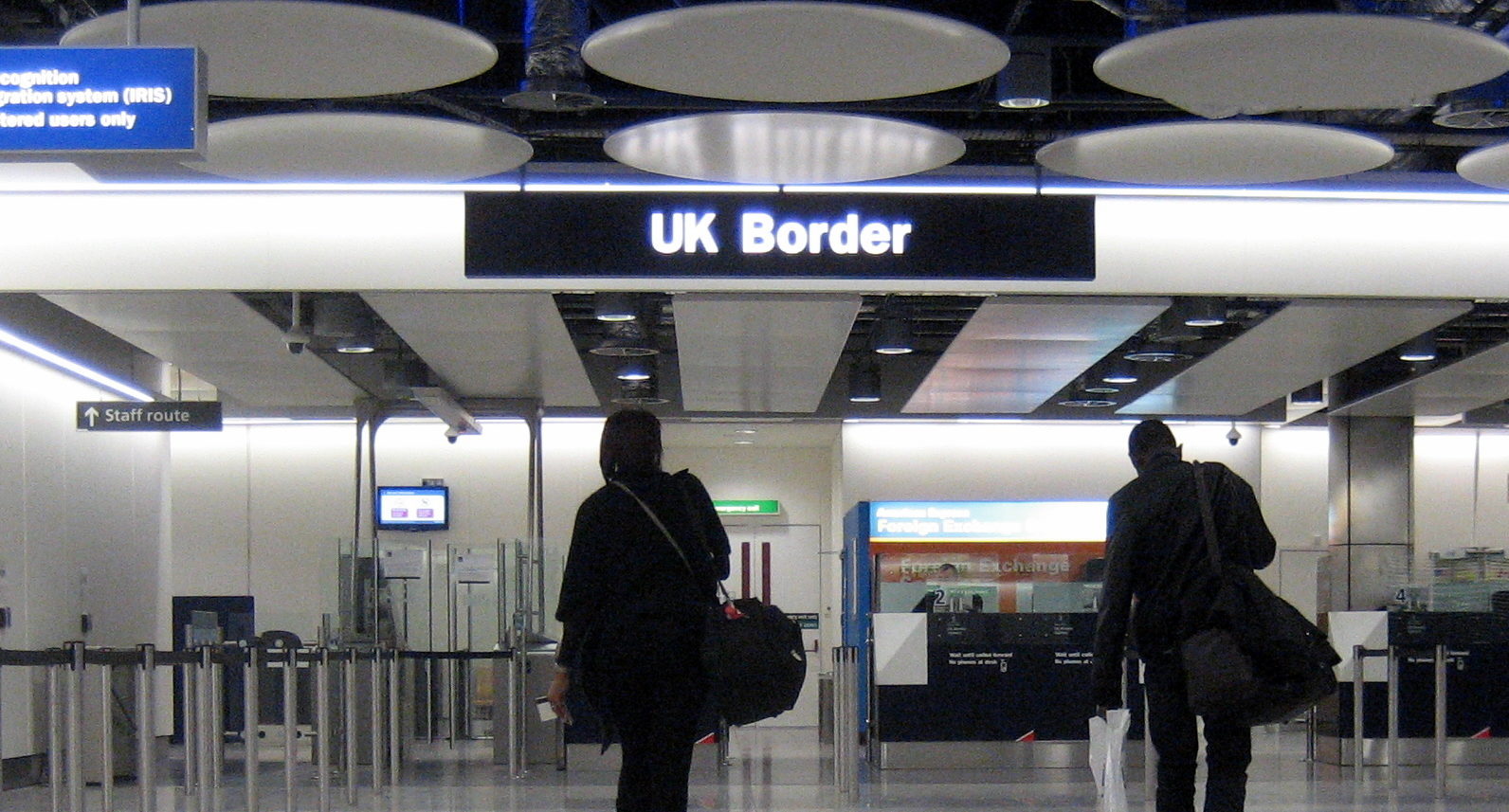Undocumented Migrants Must Be Given Access to Healthcare and Welfare
by Benjamin Morgan
27 March 2020

In response to the coronavirus pandemic, healthcare and welfare provision must be made available to everyone, regardless of their immigration status.
The UK border regime already condemns hundreds of thousands of undocumented migrants and others with insecure immigration status to extreme precarity: sofa surfing, rough sleeping and illegal work.
Since 2012, ‘hostile environment’ measures have deepened the social chasm separating those with secure immigration status from those without. The latter group is made up overwhelmingly of racialized and working-class migrants, but also includes people who have lived in the UK since childhood, or who were born here.
Many migrants who have the legal right to be in the UK are also barred from essential welfare provision by ‘no recourse to public funds’ policies and restrictions on EU citizens’ rights to social assistance. Britain’s departure from the EU will add thousands of EU workers, who have for years propped up the construction, agricultural and social-care sectors of the UK economy, to the ranks of the undocumented.
Migrants who are not allowed to work or claim benefits rely on the underground economy for survival. Where sickness, childcare responsibilities or increased enforcement make working impossible, they turn to charities and solidarity groups to help them sustain life.
As cities and businesses shut down and people with homes retreat to them, that support is disappearing. Migrant legal centres, where undocumented people can get free advice about regularizing their immigration status, were already overwhelmed, with queues forming before 7am.
Other centres, run by community or religious groups or local branches of the Red Cross, have kept people afloat for years through the weekly provision of vouchers, clothes and food parcels, as well as facilities for washing and making telephone calls. Such organisations have given migrant rough sleepers and the families forced to sleep on buses a place to be—during the day at least.
Almost all of these services have now been forced to shut their doors or radically reduce their services. Refugee and asylum-seeker hosting schemes have closed to new referrals. If alternative provision is not made, the UK’s coronavirus lockdown will have disastrous consequences for already-destitute migrants—up to and including starvation.
Since social distancing policies were announced, and in anticipation of the new restrictions introduced last Monday, NGOs and activists have been demanding that the government take steps to ensure that everyone, regardless of immigration status, can get the care and support they need during the pandemic.
Medact, Liberty and JCWI have coordinated a joint letter to the Home Secretary demanding, among other things, the immediate suspension of ‘no recourse to public funds’ policies and an end to NHS charging. Along with Migrants’ Rights Network and Project 17, the organisation I work for—PILC—has written to every local authority in England asking them to ensure vulnerable migrants in their area can access self-contained accommodation so they can self-isolate safely.
Organisations and activists have also been reminding politicians and civil servants that it will not suffice simply to make this provision universally available. Given that ‘everyday bordering’ has seen the extension of immigration enforcement into almost every area of daily life, undocumented migrants also need to be reassured that they can access support, including healthcare, without fear of detention or deportation.
The response so far has been piecemeal and inadequate. It was announced today that the homelessness minister is asking local councils to ‘utilise alternative powers and funding to assist those with no recourse to public funds who require shelter and other forms of support due to the COVID-19 pandemic’.
But there is no clarity about what form this support will take or whether undocumented people will be able to access it without their details being shared for immigration-enforcement purposes. A further push is desperately needed to ensure that the needs of migrants do not get lost amid the flurry of interest-group demands.
The coronavirus is affecting everyone in Britain. But, as David Harvey has pointed out, this is also a “class, gendered and racialized pandemic”, disproportionately impacting those whose need for care, safety and replenishment has always been put second to the demands of neoliberal capitalism.
It shouldn’t take a public health emergency to convey the message that a person’s basic social rights—to food, shelter and healthcare—should not depend on where they were born. Yet welfare policies governed by the principle of ‘differential inclusion’ have been political ‘common sense’ for years. Their opponents have been dismissed, sometimes even on the left, as a ‘no-borders’ fringe.
The result has been the heightened exposure of undocumented migrants and others to so-called social death — a condition that, not least in the current circumstances, is frequently a precursor to actual death.
To prevent this and ensure the protection of vulnerable migrants, the government must immediately remove all immigration-based eligibility criteria for welfare benefits, housing assistance and social care, along with the suspension of all NHS charging and data sharing for immigration-enforcement purposes.
If these measures are not taken at once, undocumented migrants and others with insecure immigration status will be among the earliest victims of the coronavirus and the drastic measures being taken to slow its spread.
The coronavirus pandemic has activated, at least in some, a new collective consciousness of our interconnectedness and our universal frailty. This awareness must now be channelled into calls for a welfare regime that that provides equally for everyone who lives here, whatever passport they hold.
Benjamin Morgan runs the EEA homeless rights project at the Public Interest Law Centre.